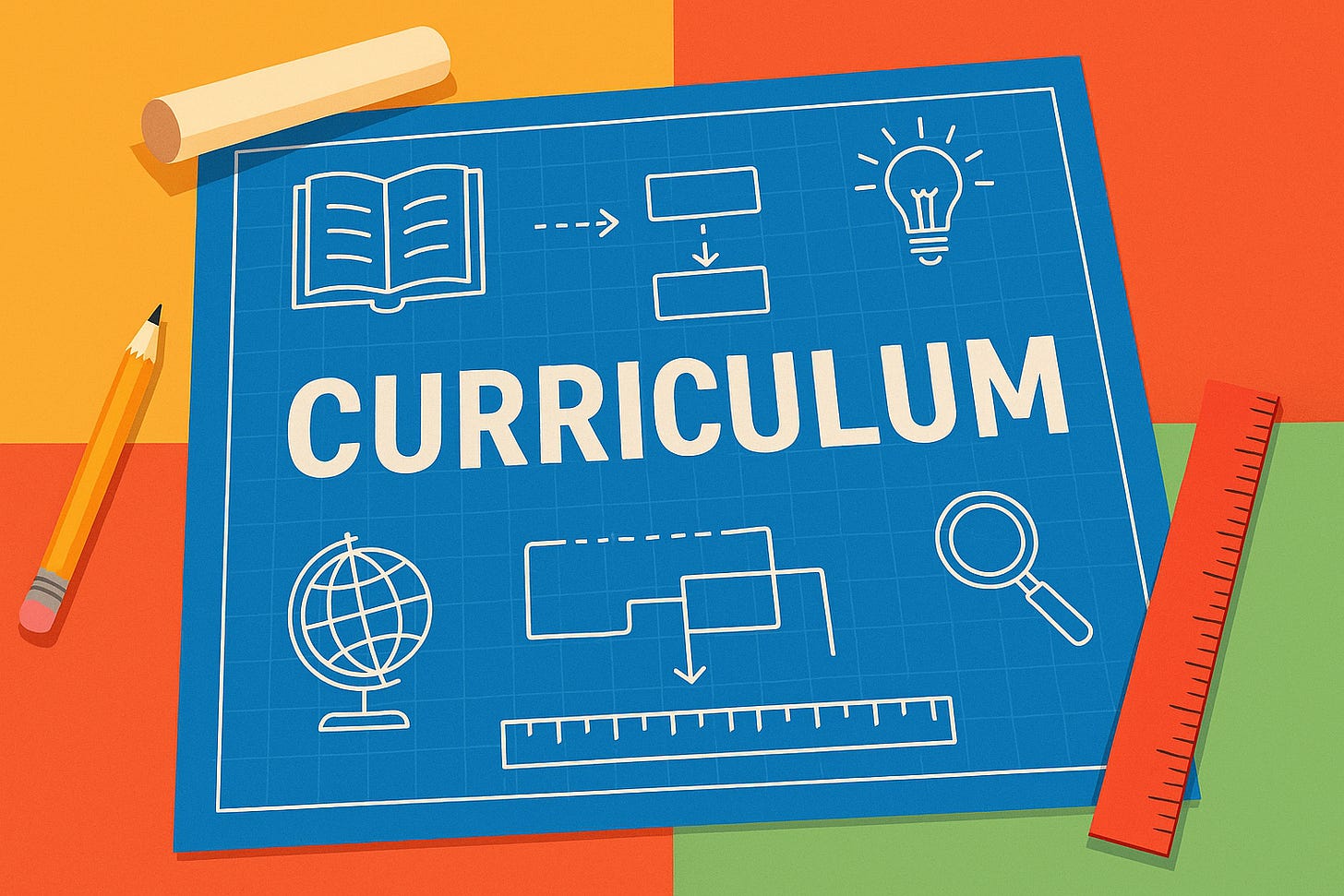What is Curriculum?
A Word Everyone Uses... But Few Can Define
Kicking off a newsletter called Curriculum Unpacked with the question “what is curriculum?” is as awkward as starting a cooking blog with the question “What is food?” But here we are, a silly start to a serious topic.
Let’s start with the obvious question: What do you think of when you hear the word curriculum? This isn’t a values argument, just a primer on what curriculum is and why it matters.
I’m willing to bet that some people may have answered that an example of a curriculum is “Common Core.” There’s no wrong answer here, so don’t feel bad if you or someone you know thought this. For better or worse, Common Core is a set of academic standards, not a curriculum. We’ll chat more about Common Core in the future, but for now, I just wanted to mention it here so we can set the stage for the coming conversations we’ll be having.
This brings us back to one definition of curriculum, which is at the core of what I want to explore with Curriculum Unpacked. Dr. Nathaniel Swain’s definition in his book “Harnessing The Science of Learning” is a great way to start thinking about this topic.
Dr. Swain notes: “The curriculum of a school is the sum of the learning experiences that are planned for students in an educational setting. Curriculum includes both what students are learning about and how teachers will structure their teaching to build student understanding.”
The gap between what schools plan to teach and what gets taught shapes everything from reading outcomes to school culture.
Swain continues: “It is useful to separate curriculum into two broad categories: The intended curriculum is that which is documented within a school or system; the teaching and learning we plan to undertake; and the enacted curriculum is what actually occurs in the classroom. Ideally, the enacted curriculum should be closely related to the intended curriculum, notwithstanding adaptations to curricula in response to formative assessment.”
It is easy to politicize the divide between intended and enacted curriculum. Do a Google search for school curriculum, and the news results will almost certainly have stories about fights over what is taught, what shouldn’t be taught, or that AI will completely redefine school experiences for learners. These fights often leave students stuck in the middle, missing foundational knowledge that shapes long-term success later in life.
As a parent, I want to have productive conversations about improving the outcomes for our intended and enacted curricula. A prominent example of intended vs enacted curricula is highlighted in the excellent “Sold A Story” podcast, where Emily Hanford investigates how reading is taught in schools. This podcast is essential listening to anyone wanting a real-life example of how missteps ripple through districts across the United States. Missing out on these early developmental years led to devastating results for students.
Curriculum Unpacked is here to help us explore these topics together. Our daughter still has a few years before kindergarten, but there’s no time to waste when it comes to figuring out what’s going on in schools and how we can make the most beneficial impact for our kid and as many others as possible.
When I first explored the idea for this newsletter as part of a summer independent study at Wichita State, I initially thought I was going to dive right into writing about a topic that I understood at the surface level. The more I read and learned about cognitive science, how we build knowledge, form understanding, and develop schemas, the more I realized this approach was not exactly the most fruitful avenue.
I’ve been immersed in researching educational topics, from cognitive science to the science of reading, and I’m just getting started. I want to cut through the search engine noise and get you information about what actually matters for families with young learners.
I’m particularly excited to dive into Cognitive Load Theory, the topic I’ll introduce next time, since it is a concept at the heart of successful learning. I hope that what I share here will be easily digestible and give you the basics if you are busy and don’t have time to read as much as I am fortunate to do.
What topics would you like to see covered in the newsletter? Part of what I’m doing for Curriculum Unpacked is answering questions submitted by readers, so send me what you’ve got. Drop a comment here or email me john@thespaceshot.com (Curriculum Unpacked email coming soon).


